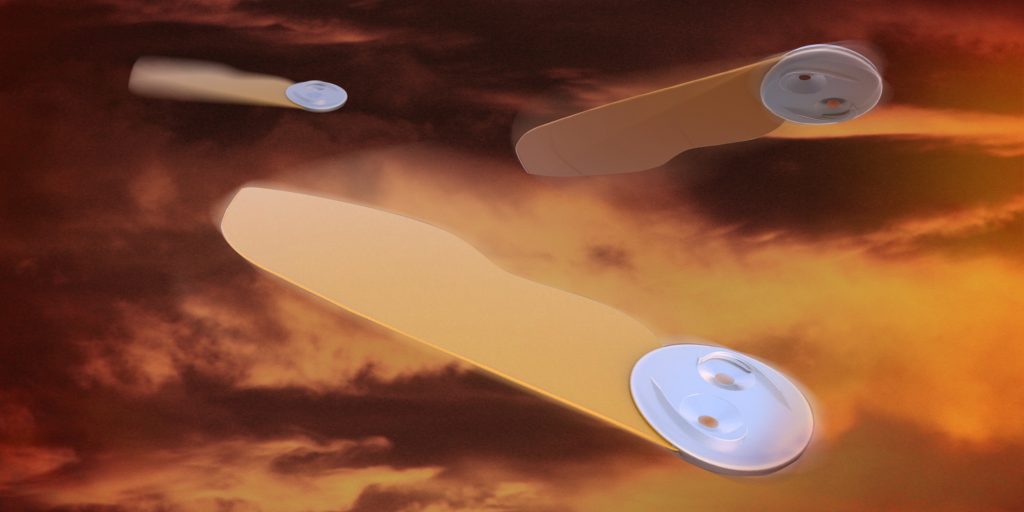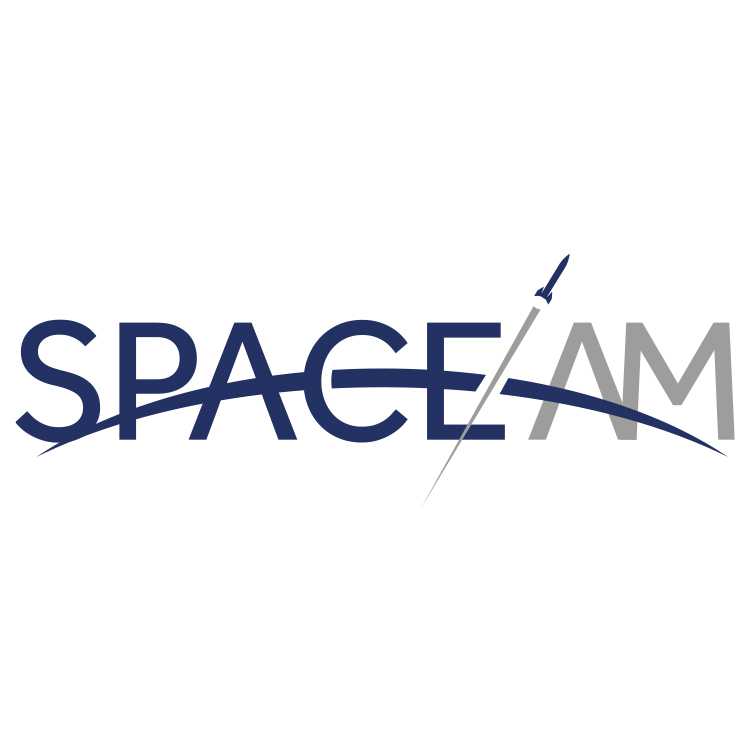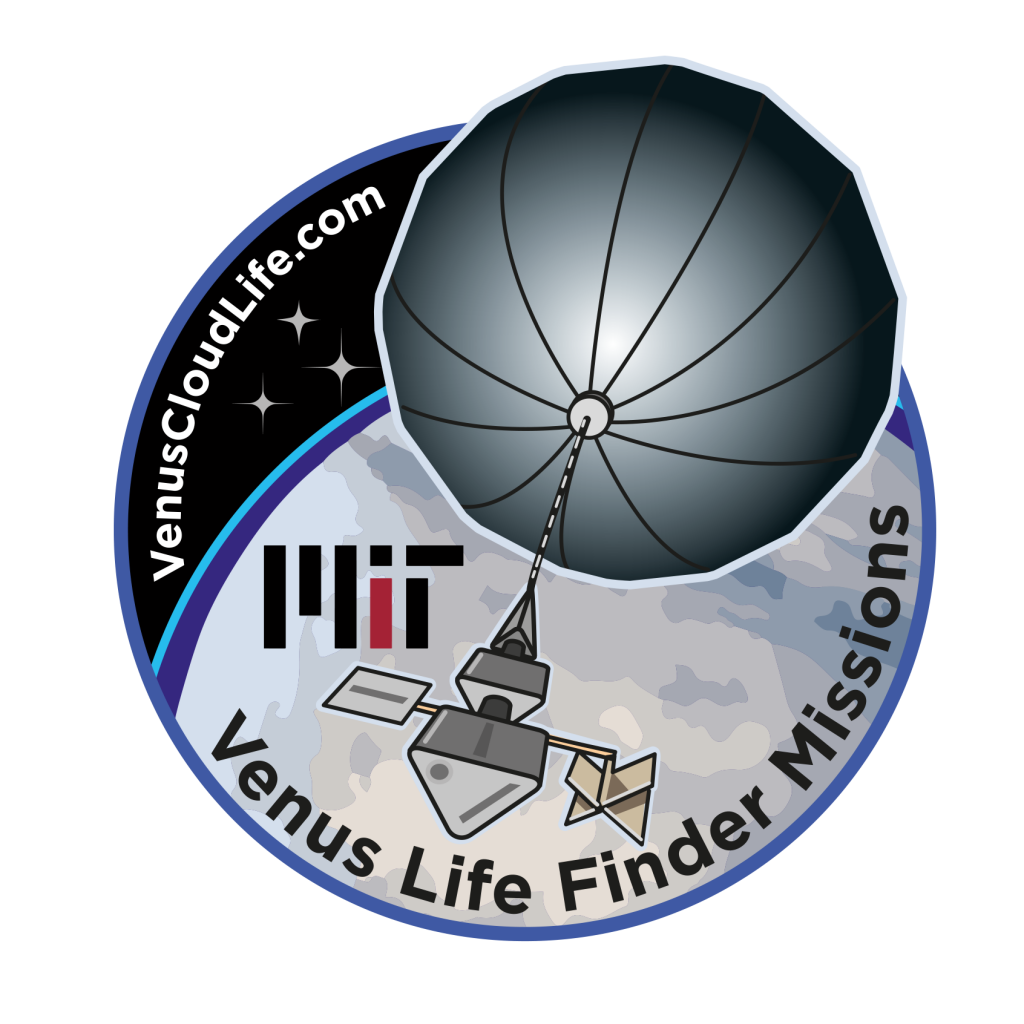Can a small, lightweight free falling sample probe be slowed enough in the Venusian atmosphere to run a 10 minute MEMS ion gas micro spectrometer, without adding a propulsion systems or explosives and parachutes to the probe mass? Our design concept and research explored using a leading-edge vortices lift system (sycamore seed shape) to create an autorotating probe design allowing for prolonged flight (above 15 minutes) and able to carry a mass total of 920 grams.

MDPI Page:
Leading Edge Vortices Lift (LEVL) Sample Probe for Venusian Atmosphere.
Appendix A
3.3 Test Article 2
FIRST FLIGHT.
Test Article 2 (TA2) has been designed as another increase in mass scale from Test Article 1, being ≈10x heavier, though maintaining a similar intrinsic component. TA2 has a wingspan of 630 mm (measured from the centre of the seed) and maximum chord of 300 mm (Figure 7). The mass in flight condition is 105.3 g
Test Article 2 (TA2) has been designed as another increase in mass scale from Test Article 1, being ≈10x heavier, though maintaining a similar intrinsic component. TA2 has a wingspan of 630 mm (measured from the centre of the seed) and maximum chord of 300 mm (Figure 7). The mass in flight condition is 105.3 g
3.2 Test Article 1
A PLA 3D-printed Test Article 1 (TA1) was created, scaled up with ≈
50% larger intrinsic component than the previously tested sycamore seeds and ≈ 70x heavier.
Designer & Initial Concept:
[email protected]
Engineer:
[email protected]
Correspondence: [email protected]
Tel.: (+44 7980578015)


